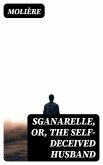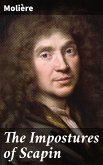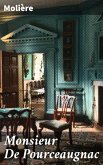In "Sganarelle, or, the Self-Deceived Husband," Moliv®re masterfully intertwines humor and social critique, unraveling the complexities of marital relationships and the follies of human nature. This one-act play is a quintessential example of Moliv®re's sharp wit and keen observational prowess, encapsulating the spirit of 17th-century French comedy. The narrative revolves around the titular character, Sganarelle, whose delusions about his own authority lead to comedic misadventures, deftly illuminating themes of jealousy, deception, and the absurdities of self-perception within domestic spheres. The dialogue is laced with ironic undertones, making sharp commentary on the societal norms governing marriage and masculinity during Moliv®re's time. Moliv®re, born Jean-Baptiste Poquelin, was an influential figure in French literature and regarded as one of the greatest masters of comedy. His diverse background in both law and theater provided a unique perspective on the social dynamics of his era. Familiar with the tensions of bourgeois life, Moliv®re utilized comedy as a lens to challenge societal pretensions and moral hypocrisy, which are evident in the layers of irony found in "Sganarelle." For readers and theater enthusiasts alike, "Sganarelle, or, the Self-Deceived Husband" is not just a comedic escapade but a profound exploration of human folly. Moliv®re'Äôs timeless wit and insightful critique make this work a compelling read, inviting laughter while prompting reflection on the intricate dance between self-deception and reality in personal relationships.
Dieser Download kann aus rechtlichen Gründen nur mit Rechnungsadresse in A, B, BG, CY, CZ, D, DK, EW, E, FIN, F, GR, H, IRL, I, LT, L, LR, M, NL, PL, P, R, S, SLO, SK ausgeliefert werden.









